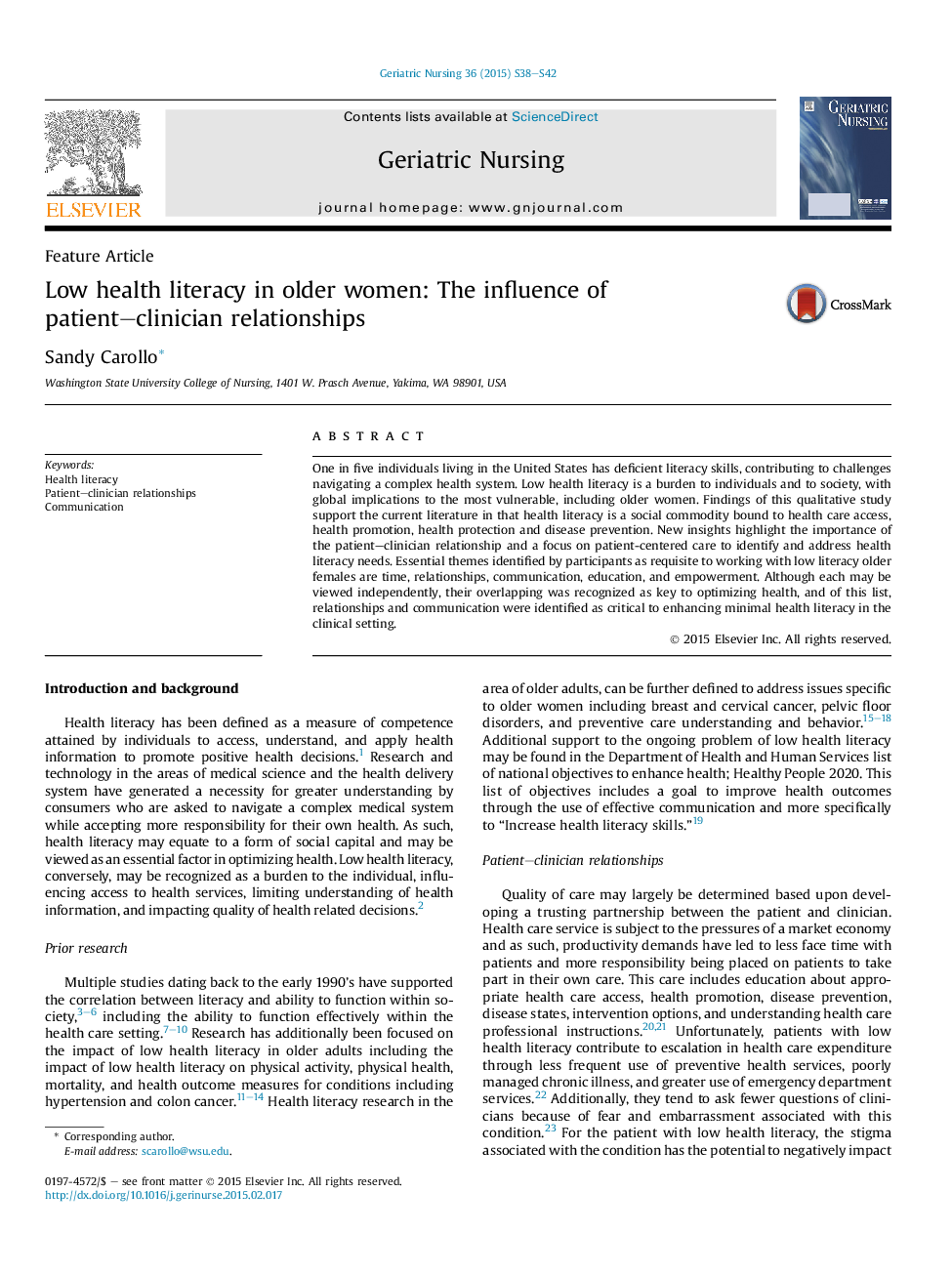| Article ID | Journal | Published Year | Pages | File Type |
|---|---|---|---|---|
| 5868859 | Geriatric Nursing | 2015 | 5 Pages |
Abstract
One in five individuals living in the United States has deficient literacy skills, contributing to challenges navigating a complex health system. Low health literacy is a burden to individuals and to society, with global implications to the most vulnerable, including older women. Findings of this qualitative study support the current literature in that health literacy is a social commodity bound to health care access, health promotion, health protection and disease prevention. New insights highlight the importance of the patient-clinician relationship and a focus on patient-centered care to identify and address health literacy needs. Essential themes identified by participants as requisite to working with low literacy older females are time, relationships, communication, education, and empowerment. Although each may be viewed independently, their overlapping was recognized as key to optimizing health, and of this list, relationships and communication were identified as critical to enhancing minimal health literacy in the clinical setting.
Keywords
Related Topics
Health Sciences
Medicine and Dentistry
Geriatrics and Gerontology
Authors
Sandy Carollo,
